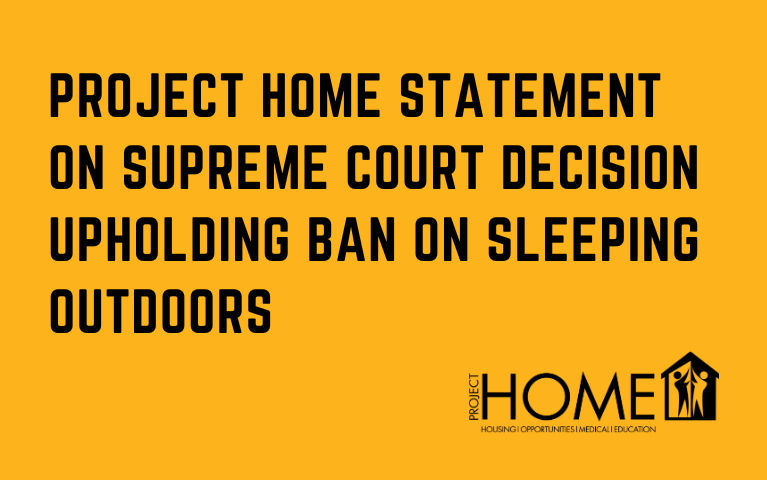Our Statement on Supreme Court Decision Upholding Ban on Sleeping Outdoors

Today, the U.S. Supreme Court ruled that it is not cruel and unusual to impose a fine on an unhoused person who is sleeping outside, even when they have no other place to go. This ruling is a significant step in the wrong direction. It criminalizes homelessness and threatens the lives and dignity of those who simply need access to safe and affordable housing. The anti-camping and anti-sleeping ordinances at issue in this case are, as Justice Sotomayor observed in her dissent, “unconscionable.”
Encampments and unsheltered homelessness are daily reminders of the affordable housing crisis in our country and the incredible struggles individuals and families face in day-to-day life. Criminalizing homelessness is not the answer. It actually exacerbates the challenges. Criminal records and warrants from unpaid fines can make it more difficult to exit homelessness. Warrants from unpaid fines can result in a person being disqualified from public housing and the impact on the person’s credit report can make it more difficult to secure housing.
This ruling creates the potential for more encampment sweeps and other aggressive tactics. Encampment sweeps can disrupt connections to outreach workers and healthcare providers. When encampments are cleared without a plan for storage, items that are needed for survival are often lost and vital documents are destroyed. For too many Philadelphians, vital documents are barriers to exiting homelessness.
Every community deserves shared public spaces that can be utilized by all. But further criminalizing homelessness and adding additional barriers to housing is cruel. It’s inhumane – not to mention ineffective.
We know what works. When paired with supportive services and access to high quality health care, permanent housing can end and prevent homelessness and enhance the quality of life for the entire community. People who are homeless, or at risk of homelessness, need the same opportunities we all do: safe, decent, affordable housing, quality education, employment, and access to health care. We are one human family, and our shared success will depend on the strength of our commitment to our shared vision—none of us are home until all of us are home.